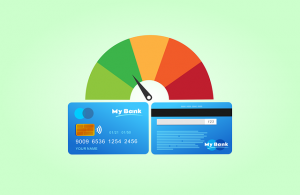
A positive loan can have both a positive and negative effect on your credit score. While a personal loan in itself doesn’t negatively affect your credit score, it affects your ability to obtain additional credit in the short term. When you take out a personal loan, your overall credit score temporarily drops as you have acquired debt.
However, when you pay off your loans in a timely manner, you are able to quickly build your overall credit score. All in all, if you are looking to take out a personal loan, it is crucial that you do some proper research and carefully consider all the available options to ensure that you get the best deal possible.
What Makes Up Your Credit Score
To have a better understanding of how personal loans affect your credit score, it is important to first understand how your score is calculated. Most lenders utilize the FICO score to assess an applicant’s credit risk. It was created by the Fair Isaac Corporation and its scores range from 300 to 850.1.
An applicant’s credit score is determined using 5 different pieces of credit data from your credit report: payment history, length of credit history, amounts owed, credit mix, and new credit. The following is a breakdown of the level of importance each factor has in the calculation, according to FICO, however, the real percentages may vary between the three key credit rating agencies:
– Your payment history comprises 35% of your total credit score.
– Your outstanding debt comprises 30% of your total credit score
– Your credit history comprises 15% of your total credit score
– New line of credit comprises 10% of your total credit score
– Credit mix comprises 10% of your total credit score
Can Taking Out a New Loan Affect Your Credit Score?
By obtaining a new personal loan, you have essentially increased your outstanding debt and acquired new a line of credit. Thus, as shown above, this can potentially affect your credit score.
Any new financial activity will be recorded by the credit agencies. For instance, let’s say you made arrangements for a car loan, shortly after you took out a personal loan. While you may have qualified for the car loan, it may get rejected based on the fact that you already have as much debt as you can handle.
An applicant’s overall credit history bears more weight on your credit score than a single new loan. Applicants with a long history of making payments on time can expect a lesser impact on their credit score from taking out a new loan. The simplest and most effective way of minimizing the effect a personal loan has on your credit score is to make timely payments and as per the terms of the loan agreement.
How a Personal Loan Can Improve Your Credit Score
Personal loans that are paid on time will boost your credit score. Timely payments and a fast birdging loan indicate to the creditors that you can manage debts well and are a low-risk applicant.
Somewhat ironically, people who choose to steer clear of debts and never take out loans often have poor credit scores. This is mainly due to the fact that they don’t have a payment history, which is the most important factor when calculating credit scores.
What Credit Score Is Required to Qualify for a Personal Loan?
Generally, the higher your credit score, the higher your chances are of qualifying for a personal loan and getting more favorable terms. As stated earlier, the FICO scores start from 300 to 850.1. In this regard, applicants with a credit score above 670 are generally deemed creditworthy.